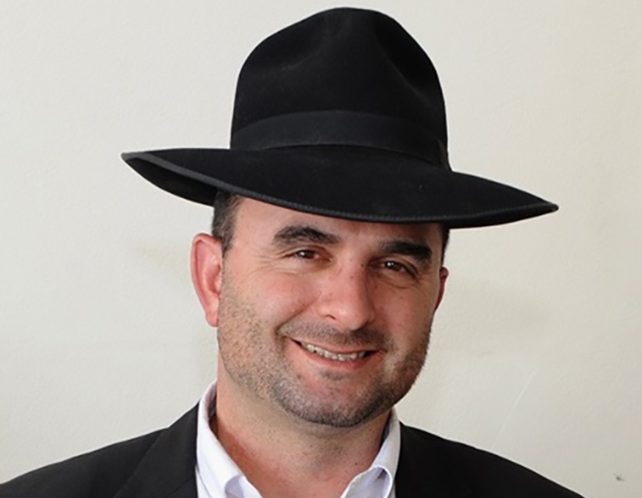
Parshot/Festivals

The blitzing of the Bokke teaches us a lesson
When they get going, there’s no stopping the sensational green and gold. They instil fear and trepidation into the hearts of their opposition. Blink, and you might find two tries have been scored by the vinnige Blitzbokke. Over the years, they have captured the hearts of South African rugby fans as they tally up an array of trophies that have made them number one in the world in the rugby 7s, many times over.
Which is why I was so utterly disappointed, frustrated, and annoyed at what happened on Tuesday, 27 July at 11:45. I know the time because I had logged on to watch the Olympic Rugby 7s quarter-finals between South Africa and Argentina. Coffee in hand, on a brisk, cold winter’s day, I was sure I’d be warmed up by a fine result from our boys. I didn’t have to wait long before Selwyn Davids cruised passed the Argentinian players to score after just two minutes. Seven-zero up and looking good. Then, a minute later, an over-enthusiastic high tackle by Argentina’s Gastón Revol resulted in him being red-carded. It was surely going to be a massacre now. Revol was literally crying on the sideline, feeling the anguish of his blundering foul having let his teammates down at this all-important Olympic quarterfinal.
No-one expected anything other than that the feared Blitzbokke, with a one man advantage, would overwhelm the talented Argentinians.
As a South African, the next 11 minutes were painful to watch. The Blitzbokke became complacent. They became sloppy. Their systematic style was nowhere to be seen. The Argentinians, however, were galvanised by the disappointment of losing a player, and rallied with an incredible show of guts, heart, and pure commitment to make up the shortfall. Marcos Moneta ran away with two tries. Captain Santiago Álvarez scored a third in the second half. With little time to go, the Blitzbokke were given a chance after being awarded a penalty try. Argentina then had another player sent off, this time yellow carded and sent to the “sin-bin”. Yet, the five-man Argentinian team resolutely defended the last short period and defeated the mighty Blitzbokke.
That 15 minute 7s rugby match made an indelible impression on me. I analysed it for the amazing phenomenon that it was, and extracted a few important lessons, particularly pertinent as we prepare to enter the day of judgement and start the new year with positive resolutions.
Proud not anguished
Jewish thought teaches that the Jewish people are one team with a common and intertwined destiny. Each Jew has a vital role to play and together, we combine to fulfil am Yisrael’s overall mission. When Moshiach comes, how our part was essential to the overall task of the Jewish people will be recognised. By playing our part in the team effort, we will be able to stand proud alongside our historic team when the final whistle signals for full time. What we don’t want is to squander our special privilege and opportunity and, like Revol, be on the sideline writhing with torment at having let our team down. Rosh Hashanah is a time to recommit to being part of the great team of am Yisrael, and playing the role that we have been allotted.
Keep rising
The Blitzbokke became complacent after their advantage widened and they were playing a man to the good. In Ethics of the Fathers, the great sage, Hillel, teaches the Mishnah: “Do not trust yourself until the day you die.” It refers to he who becomes complacent and thinks that he has it all figured out and doesn’t have to be vigilant, that he doesn’t have to be on guard against the dangers of temptation and the yetser harah (inclination to do evil). He is fooled by the sense that he has it in the bag and can take it easy – not having to keep pushing forward and growing. This smug approach can lead to disaster. Judaism teaches that man has a natural tendency towards material drives and that he needs to keep striving, toiling, and putting effort into his spiritual growth otherwise he will regress. The often-used analogy is that in life, one is walking up an escalator against the escalator’s downward motion. By standing still, one will back-slide. Only by continuously walking up and pushing forwards will one grow, reach higher, and avoid descending. The dangers of complacency are iterated in Talmud Berachot (29a), where it tells of Yochanan, who after having faithfully served as kohen gadol for 80 years, lost his way and became a Sadducee. Rosh Hashanah is a time to charge and strengthen our souls to ensure that we prevail over yetser harah the year over.
Chips down – heart up
The Argentinian team, after having lost a player, instead of acquiescing to what seemed to be an inevitable defeat, defied expectation. The loss and subsequent deficit in their team made the players even more determined and brought out in them a valiancy, raising them to greatness. Jewish thought explains that even if one sees that the chips are stacked against one and it may look as if the situation is bleak, one must never despair and lose one’s belief and resolve. It’s in times of difficulty that one is, in fact, able to access even greater reserves and find the deeper strengths that lie within, and can thereby prevail. Numerous examples of this are evident throughout Jewish history. The Maccabees for one and, in modern times, the numerous wars that Israel has fought against seemingly insurmountable odds – yet, we have seen that with G-d’s help and the resolute Jewish spirit, the few have defeated the many.
On an individual level, the same is true for each of us as we strive to face and overcome our inner enemy which seems at times to be overwhelming. Although the darkness seems acute and formidable, the light of our godly soul is so much greater and more powerful when it’s aroused and its flame fanned. It’s then that the seemingly insurmountable darkness is blitzed by the light of the irrepressible Jewish neshama, and transformation and redemption takes place.
- Rav Ilan Herrmann is a spiritual leader in the South African Jewish community, where he has served for more than two decades. He is a writer, lecturer, and publisher.










